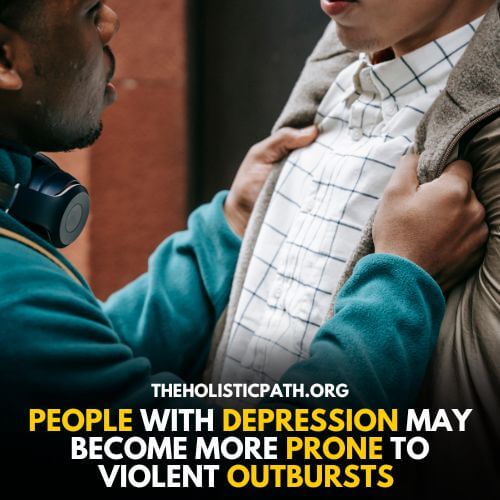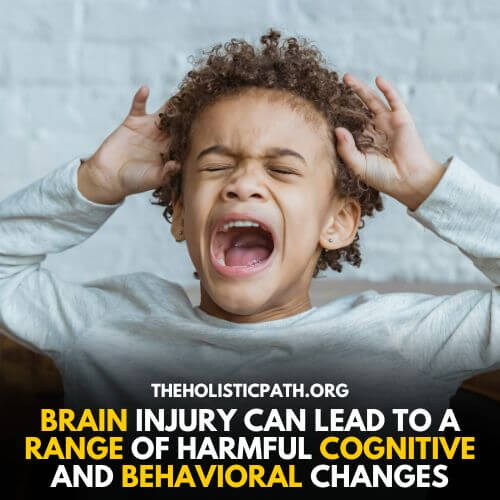Depression is a serious mental health condition that affects millions of people worldwide and can manifest itself in many different ways. One of the telltale signs of depression is impulsive behavior, which can range from excess spending to risky sexual activity.
In this article, we will discuss the query ‘is impulsive behavior a sign of depression’ and what steps you can take if you or a loved one are exhibiting this behaviour. Furthermore, we will look at how to recognize and manage impulsive behavior as part of managing depression.
12 Examples of Impulsive Behavior As a Sign of Depression
Impulsive behaviour can be a sign that something is wrong. It often indicates underlying psychological issues, like depression. Impulsive behavior can take many forms and can range from mild to dangerous activities. Examples of impulsive behaviour include:
- Excessive spending: People with depression are more likely to make impulsive purchases, often in an effort to fill a void or improve their moods.
- Reckless Driving: People may become more reckless when driving, taking risks they would not normally take if they were feeling healthier.
- Substance Abuse: People with depression may resort to substance abuse, such as alcohol and drugs, in an attempt to cope with their feelings.
- Risky Sexual Behavior: People with depression are more likely to engage in risky sexual behaviour that can lead to physical or emotional harm.
- Oversleeping: Oversleeping can be a sign of depression and is often impulsive because it’s an attempt to escape difficult feelings.
- Violent Outbursts: People with depression may become more prone to violent outbursts as a result of their condition.
- Compulsive Eating: Compulsive eating, or eating in response to negative emotions such as boredom or sadness, is a common sign of depression.
- Drug Overdose: People with depression are more likely to engage in potentially fatal drug overdoses as a result of their condition.
- Compulsive Gambling: Impulsive gambling can be a sign of depression as people with the condition may turn to it in an effort to distract themselves from unpleasant emotions.
- Self-Harm: People with depression often engage in self-harm such as cutting, burning, or bruising themselves as a way to cope with difficult feelings.
- Withdrawal from Friends and Family: Depression can cause people to withdraw from social activities and loved ones as a way of avoiding difficult emotions or situations.
- Excessive Risk-Taking: People with depression may take more risks than they would without the condition, such as engaging in dangerous activities or reckless behaviour.
These are just a few examples of how impulsive behaviour can be related to depression. It’s important to remember that everyone experiences depression differently and these behaviours may not necessarily be present in every person.

Link of Major Disorders With Impulsive Behavior
Impulsive behaviour is often a sign of underlying psychological issues, such as depression. It can lead to dangerous activities and risky decisions, so it’s important to understand the causes and effects of this type of behaviour in order to provide appropriate support for individuals who are struggling. Different factors may contribute to impulsive behaviour, including:
Borderline Personality Disorder
Impulsive behaviour is a set of behaviours that can be harmful and dangerous, and often indicate underlying psychological conditions that require medical attention. Impulsive behaviour has been linked to various disorders like Borderline Personality Disorder (BPD). BPD affects about 1.6% of the adult population in the United States, making it one of the most common mental health conditions. Here are six ways in which impulsive behaviour can be related to BPD:
- Intense and rapid changes in mood: People with BPD often experience sudden and extreme shifts in emotion, such as from happiness to sadness or anger. This can cause them to act impulsively without thinking through the consequences of their actions.
- Promiscuity and reckless behaviour: People with BPD may engage in reckless behaviours such as promiscuous or unprotected sex, drug abuse, driving under the influence, or other dangerous activities.
- Unstable relationships: People with BPD tend to have difficulty maintaining healthy relationships due to their impulsive behavior.
- Self-harm: People with BPD are more likely to engage in self-harming behaviors such as cutting or burning themselves, as a way to cope with difficult feelings.
- Extreme impulsivity: People with BPD often exhibit extreme impulsive behavior, meaning they act without considering the consequences of their actions.
- Suicidal thoughts or behavior: People with BPD may have suicidal thoughts, or engage in self-harming behaviors as a way to cope with their intense emotions.
Bipolar Disorder
Bipolar disorder is another mental health condition that can lead to impulsive behavior. Bipolar disorder affects up to 2.6% of the adult population in the United States, making it one of the most commonly diagnosed mental health conditions. Here are six ways in which impulsive behavior can be related to bipolar disorder:
- Impulsive spending: People with bipolar disorder may feel compelled to spend large amounts of money impulsively, often without considering whether they can afford it or not.
- Substance abuse: Bipolar individuals may be more likely to engage in substance abuse and other risky behaviors as a way to cope with their intense emotions.
- Hypersexuality: People with bipolar disorder may have an increased sex drive, and engage in risky sexual behavior without considering the consequences.
- Poor judgement: Bipolar individuals may make decisions without thinking through their consequences or potential risks, leading to impulsive behaviors.
- Risky activities: People with bipolar disorder may take part in high-risk activities such as driving recklessly or engaging in extreme sports.
- Reckless behavior: Bipolar individuals may engage in dangerous behaviors without considering the consequences, such as drug use, reckless driving, or unprotected sex.
Attention Deficit Hyperactivity Disorder
Attention Deficit Hyperactivity Disorder (ADHD) is another mental health condition that can lead to impulsive behavior. ADHD affects about 5% of the adult population in the United States, and is characterized by difficulty concentrating, hyperactivity, and impulsivity. Here are six ways in which impulsive behavior can be related to ADHD:
- Impulsive decision-making: People with ADHD may make decisions without considering the consequences or potential risks of their actions.
- Distractibility: People with ADHD may have difficulty staying focused on tasks due to their impulsivity, leading to impulsive behavior.
- Lack of self-control: Individuals with ADHD may have difficulty controlling their impulses, leading them to act without thinking.
- Impulsive speech: People with ADHD may talk more than normal, and may say things impulsively without considering the consequences of their words.
- Risky behavior: People with ADHD may take part in risky activities such as driving dangerously or engaging in extreme sports.
- Poor impulse control: Individuals with ADHD may not be able to resist the urge to engage in harmful behaviors such as substance abuse, gambling, or reckless sex.
Antisocial Personality Disorder
Antisocial Personality Disorder (ASPD) is a mental health condition characterized by a disregard for the rights of others and impulsive behavior. ASPD affects about 3% of the adult population in the United States, and can lead to a range of disruptive and dangerous behaviors. Here are six ways in which impulsivity can be related to ASPD:
- Disregard for rules: People with ASPD may not be able to resist the urge to break the law or disobey social norms, leading to impulsive behaviors.
- Lack of empathy: Individuals with ASPD may not think about how their actions might affect other people, and can act impulsively without considering the consequences.
- Deception: People with ASPD may lie or manipulate others to get what they want, without thinking about the long-term implications of their behavior.
- Risky behaviors: Those with ASPD may take part in dangerous activities such as drinking and driving or engaging in risky sex without considering the risks.
- Aggression: People with ASPD may be more likely to act out of anger or frustration, leading to impulsive behaviors that can be dangerous.
- Impulsive spending: Individuals with ASPD may make purchases impulsively and without considering whether they can afford them or not.
Brain Injury
Brain injury can lead to a range of cognitive and behavioral changes, including impulsivity. Brain injury is an umbrella term that covers any damage or trauma to the brain, which can be caused by illness, accident, stroke or even prolonged exposure to toxins. Here are six ways in which brain injury can lead to impulsivity:
- Disinhibition: Damage to the frontal lobe of the brain can lead to disinhibition, a condition which can cause people to act impulsively without considering the long-term consequences of their behavior.
- Poor decision-making: Brain injury can affect a person’s ability to think clearly and logically, leading them to make decisions quickly without considering the potential risks and consequences.
- Risky behavior: People with brain injury may take part in dangerous activities such as drinking and driving or engaging in unprotected sex, which can be a result of their impulsivity.
- Impulsive spending: Those with brain injury may find themselves making purchases impulsively, without considering the financial implications of their decisions.
- Agitated behavior: Individuals with brain injury may become agitated more easily, leading to impulsive outbursts which can have serious consequences.
- Lack of empathy: People with brain injury may not be able to understand how their actions might affect other people, leading to impulsive behavior.
Other Disorders Related To impulsive Behaviours
There are a few other disorders as well which play their part in making a person impulsive and agitated. These mental disorders add to depression and anxiety. Here are the important ones:
- Kleptomania: It is a mental disorder characterized by an overwhelming urge to steal items, even when the individual has no need for them. It is estimated that 1-5% of adults suffer from kleptomania.
- Pyromania: It is a mental disorder marked by an irresistible urge to set fires. People with pyromania often do not consider the consequences of their actions, and this can lead to serious injury or death.
- Trichotillomania: It is a mental disorder indicated by an uncontrollable urge to pull out one’s own hair. It is estimated that 1-4% of adults suffer from trichotillomania.
- Pathological gambling: It is a mental disorder defined by an uncontrollable urge to gamble, even when the individual knows that it is causing serious financial and personal problems.

How Are Depression and Impulsive Behavior Interlinked?
Depression is a mental disorder characterized by low mood, loss of interest in activities, and feelings of worthlessness. Impulsive behavior is often linked to depression, as people with depression may be more likely to act on their impulses without considering the consequences. Here are 7 ways that depression and impulsive behavior may be related:
- Poor self-control: People with depression may lack the ability to resist their impulses, leading to impulsive behavior.
- Seeking pleasure: People with depression may be more likely to engage in impulsive behavior as a way of seeking pleasure or relief from the low mood associated with depression.
- Poor decision-making: People with depression may have difficulty making decisions, which can lead to impulsive behavior.
- Lack of reward sensitivity: People with depression may be less sensitive to rewards, and thus more likely to engage in impulsive behaviors in search of a reward.
- Poor executive functioning: People with depression may have difficulty with memory, attention and problem-solving, which can lead to impulsive behavior.
- Impulsive aggression: People with depression may be more likely to act impulsively out of anger or frustration, leading to aggressive behavior.
- Social alienation: People with depression may be more likely to engage in impulsive behavior as a way to cope with feelings of loneliness and isolation.
9 Ways How to Control Impulsive Behavior
Impulsive behavior can be damaging to your relationships, career, and overall sense of happiness. It is important to learn how to control impulsive behavior in order to lead a more balanced life. Here are nine ways that you can start controlling your impulses:
- Recognize triggers: The first step in controlling impulsive behavior is to recognize the triggers that lead to impulsive actions, such as stress, fatigue or boredom.
- Practice self-care: Self-care can include getting enough sleep, eating a balanced diet, and engaging in regular physical activity.
- Take breaks: Taking a break from a stressful situation or environment can help reduce the urge to act impulsively.
- Monitor your environment: Pay attention to the people and situations around you that may trigger an impulsive reaction.
- Practice mindfulness: Mindfulness techniques, such as deep breathing, can help to refocus your attention away from the impulse and onto something healthier.
- Count to 10: Count down from 10 in order to give yourself more time to think about the consequences of your action.
- Delay gratification: Practice delaying gratification by waiting to act on an impulse until you have had more time to consider the consequences.
- Focus on positive reinforcement: Replace impulsive behavior with positive behaviors that are rewarded with praise or other forms of recognition.
- Seek support: Seeking help from a mental health professional can be beneficial for managing impulsive behavior. Connecting with family, friends and other support networks can also be beneficial.

Conclusion
Impulsive behavior can have negative consequences, including damaging your relationships and career. However, it is possible to control impulsive behavior with the right strategies.
By recognizing triggers, practising self-care, monitoring your environment and engaging in positive reinforcement, you can start to gain better control of your impulses. Finally, seeking professional help and support from loved ones can be beneficial for managing impulsive behavior.
Frequently Asked Questions
Why are people with depression impulsive?
Depression is a complex disorder that can have a variety of effects on people, including impulsive behavior. This behavior may be the result of a combination of factors, such as seeking pleasure, poor decision-making, lack of reward sensitivity, poor executive functioning, impulsive aggression and social isolation.
People with depression may also have difficulty controlling their emotions, which can lead to impulsive behavior. It is important to recognize that depression can cause people to act impulsively and seek help from a mental health professional if needed. With the right strategies and support, it is possible to gain better control of impulses and lead a more balanced life.
What is the root of impulsiveness?
The root of impulsiveness can vary from person to person but is often related to underlying psychological issues such as depression, anxiety, and attention deficit hyperactivity disorder (ADHD). It can also be the result of environmental factors like stress or trauma.
Impulsive behavior often involves a lack of control in responding to an impulse or urge due to a lack of inhibitory control or problem-solving skills.
It is important to recognize the potential causes and seek help from a mental health professional if needed. With the right strategies, it is possible to gain better control of impulses and lead a more balanced life.
What personality type is impulsive?
Impulsivity is not a specific personality type, but it can be seen in people with certain personality types. For example, people with Type A personalities may have difficulty controlling their impulses due to their competitive nature and desire for achievement.
People who are more prone to risk-taking and sensation-seeking behavior may also be more likely to act impulsively. Similarly, people with certain mental health conditions, such as depression or anxiety, may be more prone to impulsive behavior due to difficulty controlling emotions.
Is being impulsive a red flag?
Impulsivity can be a red flag, as it can lead to dangerous or harmful behavior. If someone is exhibiting impulsive behavior that threatens the safety of themselves or others, then it is important to seek help from a mental health professional.
It is also important to recognize potential underlying causes of impulsivity and identify strategies for gaining better control of impulsive behavior. With the right help and support, it is possible to gain better control of impulses and lead a more balanced life.
Is being impulsive a toxic trait?
Being impulsive can be a toxic trait in certain situations, as it can lead to dangerous or harmful behavior. If someone is exhibiting impulsive behavior that threatens their own safety or the safety of others, then it is important to seek help from a mental health professional.
What is the best medication for impulsivity?
1. The best medication for impulsivity will depend on the individual and the underlying cause of impulsivity. For example, people with depression or anxiety may benefit from taking antidepressants or anti-anxiety medications to help control their emotions and reduce impulsive behavior.
2. Stimulant medication such as methylphenidate (Ritalin) or dextroamphetamine (Adderall) may also be prescribed to help with attention deficit hyperactivity disorder (ADHD). These medications can help improve focus and reduce impulsive behavior.
3. Antipsychotic medications such as risperidone and aripiprazole may also be helpful in reducing impulsivity.
References:
Timothy Regan, Bethany Harris (October 23, 2019). Are relationships between impulsivity and depressive symptoms in adolescents sex-dependent? https://www.ncbi.nlm.nih.gov/pmc/articles/PMC6820279/
Dan Luo (April 19, 2022). Characteristics of depression, anxiety, impulsivity, and aggression among various types of drug users and factors for developing severe depression: a cross-sectional study. https://bmcpsychiatry.biomedcentral.com/articles/10.1186/s12888-022-03933-z
